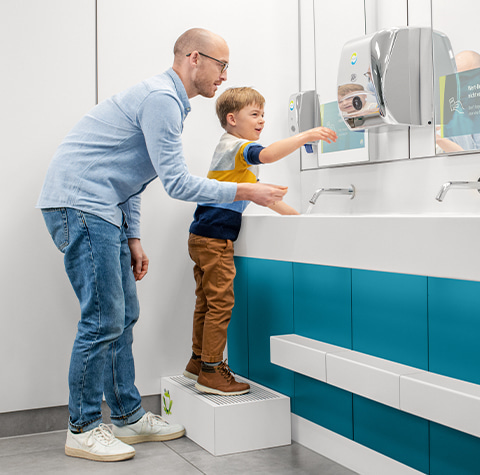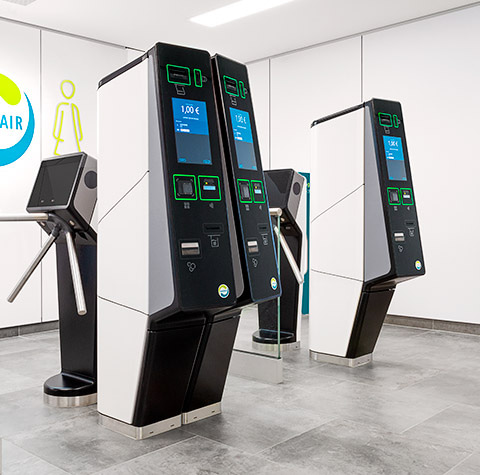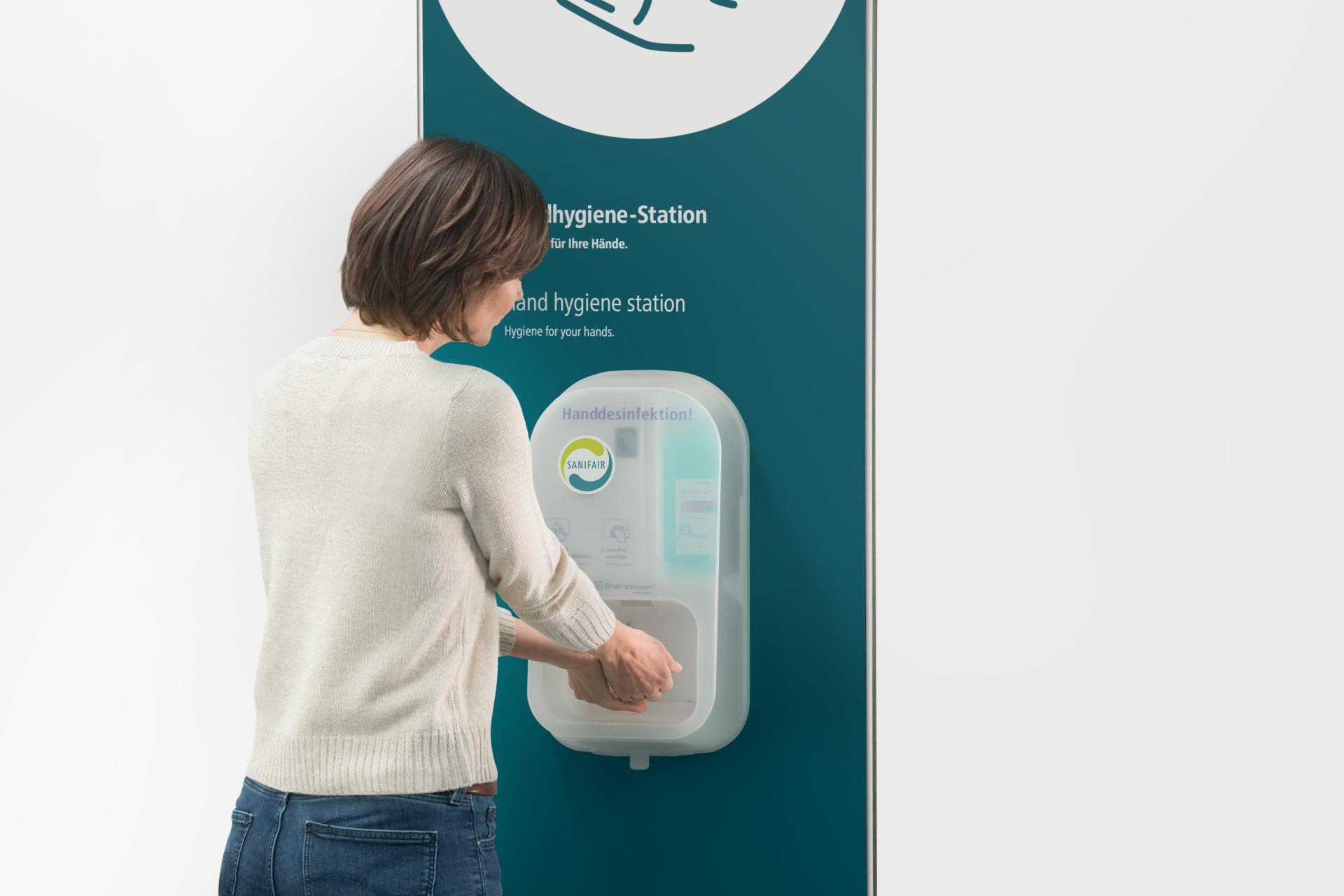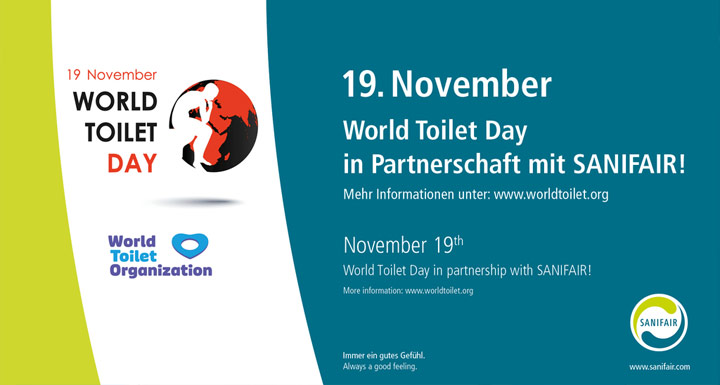Thorough hand washing reduces the number of germs to a fraction, thus reducing the risk of pathogens entering the body via the mouth, nose, or eyes and being passed on to friends, family, and colleagues.
How often should I wash my hands?
There is no general answer. Experts recommend that you always wash your hands before or after certain actions:
- After blowing your nose, coughing, or sneezing
- When you come home or to the office/work from outside
- Before and after preparing food
- Before every meal
- After going to the bathroom
- After you pet an animal
- After touching the rubbish
- Before and after treating a wound
How long should I wash my hands for?
The optimum duration of hand washing is 20-30 seconds. Only then can the number of germs be reduced to one thousandth less.* If you don't have a stopwatch or don’t want to count, just sing the ‘Happy Birthday’ song twice in a row.
If your hands are very dirty, you should wash your hands for considerably longer than 30 seconds.
How do I wash my hands properly?
1. Hold your hands under running water and wet them.
2. Cover your hands thoroughly in soap.With one hand, rub the back of your other hand and the tops of the fingers. Do this until all areas of your skin are covered in soap. Then cover the other hand in soap. Then, clean the sides of your fingers and the gaps between them. Lastly, clean both thumbs.
3. Take your time! Thorough soaping takes between 20 and 30 seconds.
4. Finally, rinse your hands thoroughly until all areas of your skin are soap free.
5. Finish by drying your hands carefully with a clean cloth.
*Source: https://www.infektionsschutz.de/haendewaschen/






